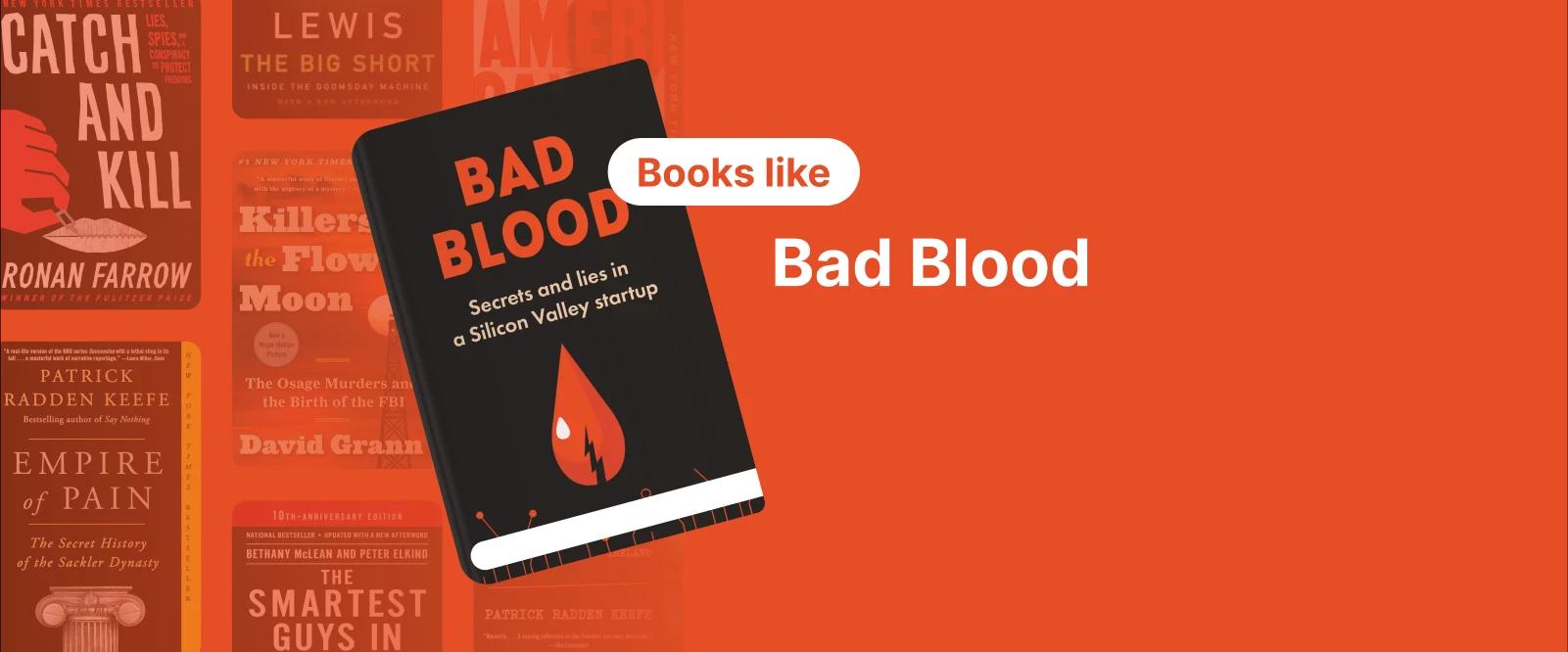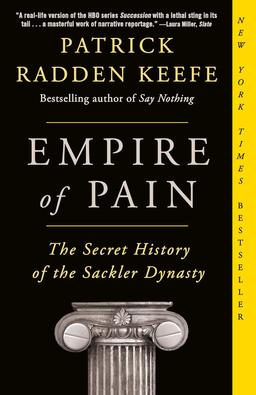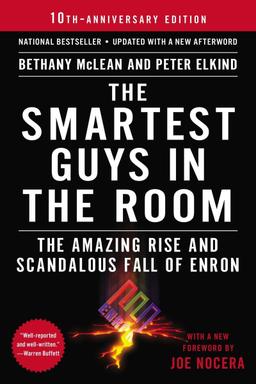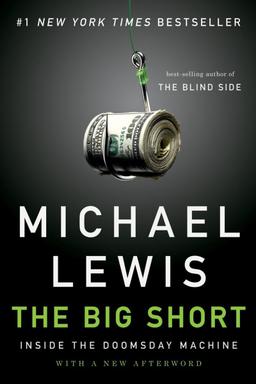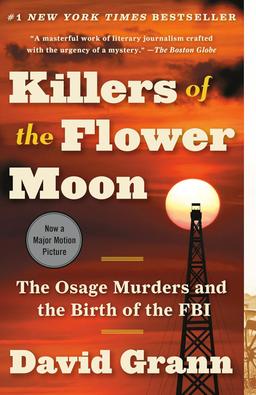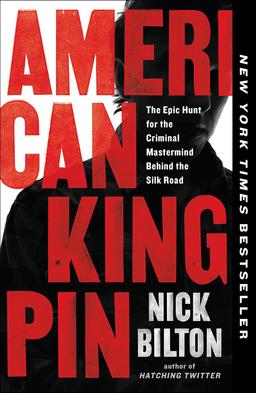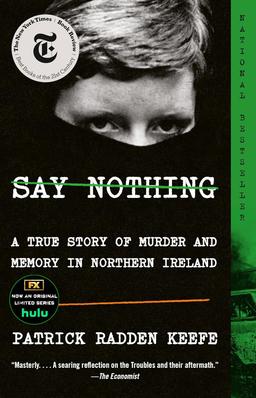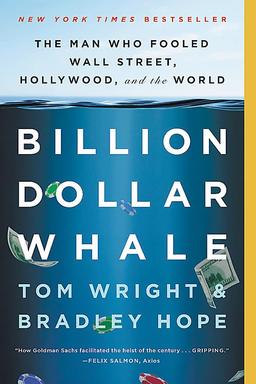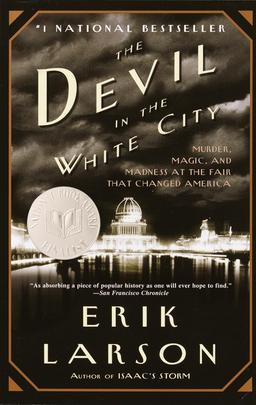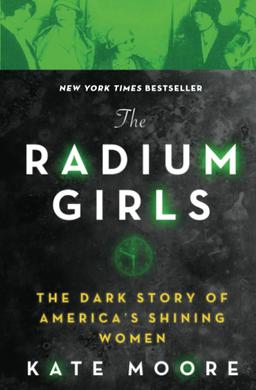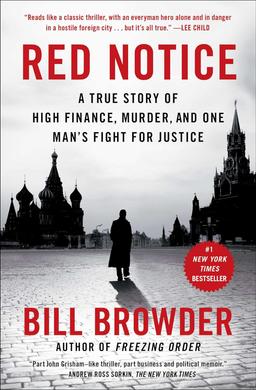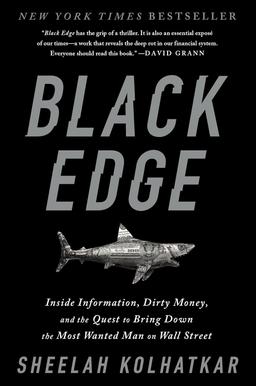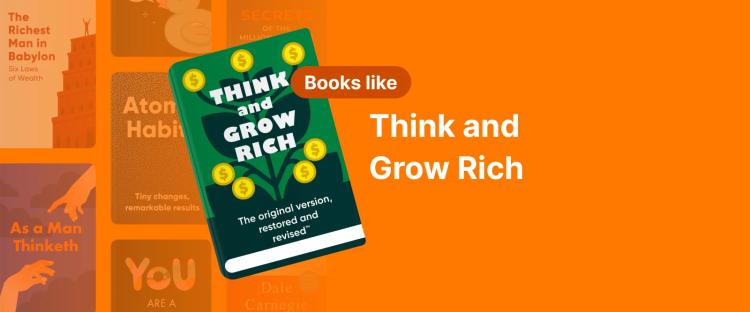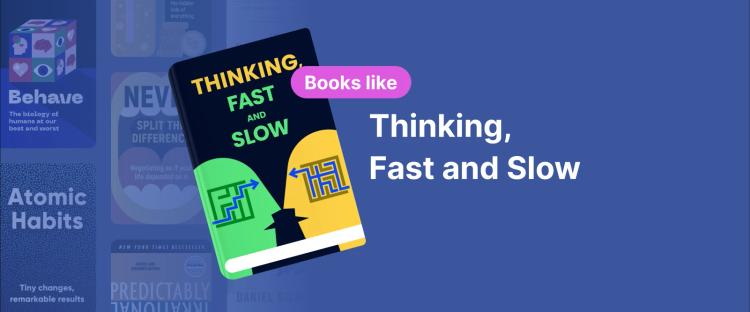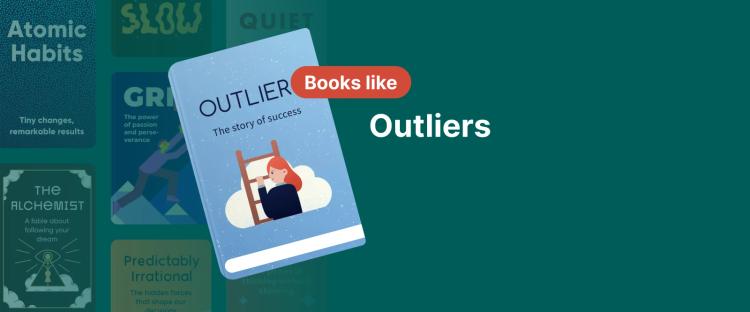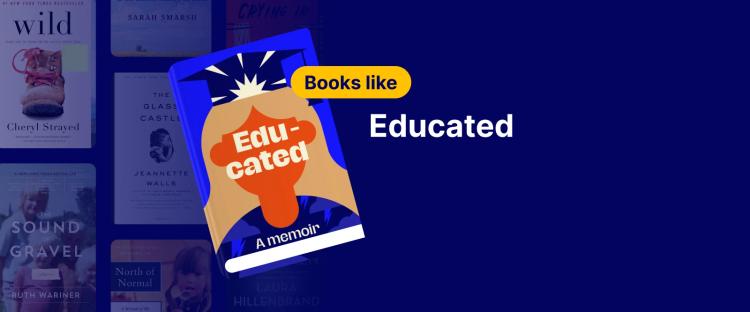Hooked on corporate scandals like that of Theranos? If John Carreyrou's investigative masterpiece left you craving more stories of corporate fraud and Silicon Valley intrigue, you're in the right place. Journalists like Patrick Radden Keefe, Michael Lewis, and Ronan Farrow have exposed similar corruption that shook industries worldwide.
Here you'll find the top 16 books like 'Bad Blood' that show the hidden truth behind corporate giants — from Enron's collapse to Wall Street's 2008 meltdown. Stories like 'Empire of Pain,' 'The Smartest Guys in the Room,' and 'Catch and Kill' combine investigative journalism with thriller-like narratives.
And if you need a reading companion with personalized book recommendations, Headway's library of book summaries is your perfect pick! With over 2000 learning tidbits, the app helps you build a daily reading habit that sticks.
Download the Headway app to access your pocket library and master the lessons from nonfiction bestsellers in just 15 minutes!
Quick guide to books like 'Bad Blood'
'Empire of Pain' by Patrick Radden Keefe — exposes the Sackler dynasty's role in the opioid crisis.
'The Smartest Guys in the Room' by Bethany McLean — chronicles Enron's spectacular collapse.
'Catch and Kill' by Ronan Farrow — uncovers conspiracies protecting predators.
'The Big Short' by Michael Lewis — reveals the 2008 financial crisis from the inside.
'Billion Dollar Whale' by Bradley Hope — details the massive 1MDB embezzlement scandal.
📘 Shocked by corporate lies? Get Headway for all 5 exposés in under 90 minutes total!
Keep reading for the full list of nonfiction books with the same vibe as John Carreyrou's international bestseller!
16 best books similar to John Carreyrou's 'Bad Blood'
These nonfiction narratives delve into the darker aspects of corporate culture and economic crimes. Much like 'Bad Blood,' they reveal the secrets and deceptions that have influenced industries and impacted lives.
1. ‘21 Lessons for the 21st Century’ by Yuval Noah Harari
In '21 Lessons for the 21st Century,' Yuval Noah Harari delves into the most urgent challenges facing our world today, particularly the societal implications of artificial intelligence and other technological innovations.
He discusses issues like diminishing privacy, the surge of automation, and the ethical questions that arise from the swift evolution of AI technologies.
The book connects technology, history, and philosophy, providing a thought-provoking viewpoint on how humanity can adapt to these extraordinary changes. Harari's analytical style and wide-ranging topics make this book a compelling read for those who enjoy investigative narratives like 'Bad Blood.’
Similarities between the books:
Both tackle the ethical dilemmas and risks associated with technological progress.
They underscore the extensive effects of innovation on society and individuals.
They are presented in an engaging narrative style, making intricate subjects easier to understand.
2. 'A Thousand Brains: A New Theory of Intelligence' by Jeff Hawkins
In 'A Thousand Brains: A New Theory of Intelligence,' Jeff Hawkins presents a groundbreaking theory of intelligence based on his pioneering research into the human brain.
He links this theory to the evolution of artificial intelligence, offering insights into how machines might replicate human thought processes. Hawkins also cautions against the potential risks of misusing AI, including surveillance and a loss of autonomy.
The book merges advanced science with philosophical inquiries about humanity's future, offering a balanced perspective on the promises and dangers of technology.
Readers who liked 'Bad Blood' will find Hawkins's emphasis on ethics and his thorough examination of a complex subject particularly engaging.
Similarities between the books:
Both investigate the unforeseen consequences of technological progress.
They bring attention to ethical issues that could transform industries and society.
They utilize storytelling to present complex concepts in an engaging and relatable manner.
3. ‘Blood, Sweat, and Pixels: The Triumphant, Turbulent Stories Behind How Video Games Are Made’ by Jason Schreier
Jason Schreier’s ‘Blood, Sweat, and Pixels’ offers an in-depth look at the video game industry, showcasing developers’ dedication, creativity, and daunting challenges.
Through a collection of behind-the-scenes narratives, Schreier delves into the successes and setbacks of game studios as they tackle technical obstacles, changing market demands, and the pressure to produce successful titles.
The book emphasizes the human aspect of innovation and the sacrifices made to create beloved games, making it a must-read for fans of investigative stories like ‘Bad Blood.’
Similarities between the books:
Both provide an insider's perspective on high-pressure industries.
They underscore the human toll of ambition and innovation.
They merge investigative reporting with captivating storytelling to uncover hidden realities.
📘 Love behind-the-scenes chaos? Download Headway for insider stories from high-stakes industries!
4. ‘Catch and Kill: Lies, Spies, and a Conspiracy to Protect Predators’ by Ronan Farrow
Ronan Farrow’s ‘Catch and Kill’ delves into the murky realm of influential figures shielding predators and silencing victims. Farrow, an award-winning journalist, recounts his intense journey of exposing abuse and corruption concealed by powerful entities.
The book uncovers lies and conspiracies, drawing readers into a narrative where reality often surpasses fiction. Those who appreciate John Carreyrou’s investigative work will find this book intriguing.
Similarities between the books:
Both feature thorough investigative journalism.
They reveal corruption and cover-ups within powerful organizations.
They highlight the systemic problems that enable such abuses to persist.
5. ‘Empire of Pain: The Secret History of the Sackler Dynasty’ by Patrick Radden Keefe
‘Empire of Pain,’ authored by Pulitzer Prize-winning journalist Patrick Radden Keefe, explores the concealed history of the Sackler family and their involvement in the opioid crisis.
The book illustrates how their insatiable greed and absence of accountability contributed to one of history’s most catastrophic public health emergencies.
Keefe’s engaging storytelling reveals the sinister truths of the Sackler dynasty, making it a must-read for anyone interested in corporate wrongdoing and the human toll of unrestrained power.
Similarities between the books:
Both works examine the effects of corporate greed on public health.
They uncover the hidden operations of influential families and organizations.
Both authors used a narrative style of writing that resembles a thriller.
6. ‘The Smartest Guys in the Room: The Amazing Rise and Scandalous Fall of Enron’ by Bethany McLean
Bethany McLean’s ‘The Smartest Guys in the Room’ narrates Enron’s ascent and downfall. The book outlines the corporate misdeeds that led to Enron’s shocking collapse, providing a thoroughly researched account of one of the largest corporate scandals in history.
Readers who appreciated the investigative style of ‘Bad Blood’ will find this book just as engaging.
Similarities between the books:
Both texts chronicle the rise and fall of a prominent company.
They reveal corporate misconduct and the repercussions of unchecked ambition.
They are grounded in detailed research and offer in-depth narratives.
7. 'The Big Short: Inside the Doomsday Machine' by Michael Lewis
Bestselling author Michael Lewis delves into the 2008 financial crisis in 'The Big Short,' which centers on the downfall of the subprime mortgage market.
The book effectively captures the complex dynamics and personalities at play, making intricate financial concepts easier to understand.
Readers who appreciated the detailed financial analysis and captivating narrative in 'Bad Blood' will find 'The Big Short' a must-read.
Similarities between the books:
Both offer an insider's perspective on significant financial scandals.
They feature compelling storytelling that brings complex topics to life.
They underscore the repercussions of greed and systemic failures.
📘 Fascinated by financial disasters? Start Headway for crisis-explaining wisdom from economic storytellers!
8. 'Killers of the Flower Moon: The Osage Murders and the Birth of the FBI' by David Grann
David Grann's 'Killers of the Flower Moon' examines the exploitation and murders of the Osage tribe in the early 20th century, which ultimately led to the establishment of the FBI.
The book addresses themes of corruption, greed, and racial injustice, presenting a chilling narrative of one of America's darkest conspiracies.
Those who enjoyed the historical and investigative aspects of 'Bad Blood' will find this book intriguing.
Similarities between the books:
Both reveal hidden crimes and systemic corruption.
They highlight the human toll of greed and exploitation.
They are grounded in thorough investigative research.
9. ‘American Kingpin: The Epic Hunt for the Criminal Mastermind Behind the Silk Road’ by Nick Bilton
‘American Kingpin’ by Nick Bilton tells the gripping tale of Ross Ulbricht, the genius behind the Silk Road. The book follows Ulbricht’s journey from ambition to downfall, detailing how he built an online marketplace for illegal goods, which led to his eventual arrest.
With its fast-paced storytelling and deep psychological insights, this book is essential for anyone who enjoyed ‘Bad Blood.’
Similarities between the books:
Both narratives explore the rise and fall of tech entrepreneurs in Silicon Valley, highlighting the hurdles faced by startups in the area.
They offer psychological insights into the motivations driving their subjects.
They present thrilling accounts based on real-life events.
10. ‘Say Nothing: A True Story of Murder and Memory in Northern Ireland’ by Patrick Radden Keefe
‘Say Nothing’ by Patrick Radden Keefe delves into the harrowing history of The Troubles in Northern Ireland, centering on the murder of Jean McConville. The book reveals the intricate web of violence, memory, and trauma that has influenced the region.
Readers who appreciate the investigative journalism and emotional depth of ‘Bad Blood’ will find this book equally impactful.
Similarities between the books:
Both works feature in-depth investigative journalism.
They reveal hidden truths and systemic injustices.
They emphasize the emotional resonance of their subjects’ narratives.
11. ‘Billion Dollar Whale: The Man Who Fooled Wall Street, Hollywood, and the World’ by Bradley Hope and Tom Wright
‘Billion Dollar Whale’ by Bradley Hope and Tom Wright tells the gripping tale of Jho Low and the 1MDB scandal. The book reveals the rampant greed and corruption that resulted in the embezzlement of billions, leading to significant global financial fallout.
Readers who enjoyed ‘Bad Blood’ will find the in-depth exploration of financial fraud and its extensive repercussions compelling.
Similarities between the books:
Both delve into high-profile financial fraud cases.
They highlight the worldwide effects of corporate greed.
Both authors are also journalists skilled in narrative storytelling.
📘 Obsessed with heist-level fraud? Get Headway for jaw-dropping scam stories from investigative journalists!
12. ‘The Devil in the White City: Murder, Magic, and Madness at the Fair That Changed America’ by Erik Larson
In 'The Devil in the White City,' soon to be adapted into an HBO series, Erik Larson weaves together the tale of architect Daniel Burnham and the horrifying murders conducted by one of America's earliest known serial killers, Dr. H.H. Holmes, during the 1893 Chicago World's Fair.
The book expertly blends history with true crime, making it an engaging read for those who appreciate the intricate narrative and historical depth of ‘Bad Blood.’
Similarities between the books:
Both merge historical events with elements of true crime.
They offer detailed narratives that reveal untold stories.
Their authors crafted them with a strong emphasis on thorough research and storytelling.
13. ‘The Radium Girls: The Dark Story of America's Shining Women’ by Kate Moore
‘The Radium Girls’ by Kate Moore tells the poignant story of young women whose jobs were to paint clock dials with radium, which resulted in serious health problems and a struggle against corporate negligence.
The book underscores the human toll of industrial exploitation and the quest for worker protection, making it a gripping read for those who enjoyed ‘Bad Blood.’
Similarities between the books:
Both narratives expose the human toll of corporate negligence.
They showcase the challenges faced by individuals standing up to powerful organizations.
They are grounded in thorough historical research and personal accounts.
14. ‘Red Notice: A True Story of High Finance, Murder, and One Man's Fight for Justice’ by Bill Browder
Bill Browder’s ‘Red Notice’ details his journey from a billionaire hedge fund manager to a dedicated human rights advocate after his lawyer, Sergei Magnitsky, was killed in a Russian prison.
The book sheds light on the corruption and risks encountered by whistleblowers, presenting a gripping tale of justice and accountability.
Similarities between the books:
Both works address the battle against systemic corruption.
They emphasize the personal sacrifices made in the pursuit of justice.
Their authors have direct experience related to their subjects.
📘 Inspired by whistleblower courage? Try Headway for justice-fighting stories from truth-tellers!
15. ‘Black Edge’ by Sheelah Kolhatkar
‘Black Edge’ by Sheelah Kolhatkar delves into the investigation surrounding Steven A. Cohen’s hedge fund and the insider trading scandal that shook Wall Street.
The book offers a comprehensive narrative of financial crimes and legal disputes, making it a must-read for anyone interested in corporate wrongdoing and the pursuit of justice.
Similarities between the books:
Both books explore high-profile financial scandals.
They reveal the inner workings of corporate crime and corruption.
The authors crafted them with a journalistic style that brings the narrative to life.
16. 'Too Big to Fail' by Andrew Ross Sorkin
Andrew Sorkin's ‘Too Big to Fail’ recounts the 2008 financial crisis, concentrating on the choices made by key figures in the financial sector. The book provides an in-depth examination of the dynamics within Wall Street and the government during times of economic distress.
The book underscores the theme of accountability in a system where many were labeled ‘too big to fail’ and subsequently received government bailouts, presenting the complete picture.
For fans of 'Bad Blood,' this book offers a parallel investigation into systemic failures and the human toll of corporate greed.
Similarities between the books:
Both books present detailed accounts of significant financial crises.
They underscore the systemic problems that lead to economic calamities.
They highlight the necessity of accountability within corporate culture.
What makes 'Bad Blood' a compelling read?
'Bad Blood: Secrets and Lies in a Silicon Valley Startup' by New York Times bestseller John Carreyrou narrates the astonishing true story of Theranos, a biotech firm founded by Elizabeth Holmes.
Holmes, often likened to Steve Jobs for her innovative persona, asserted that her company had developed a device capable of conducting numerous medical tests with just a small drop of blood. She was hailed as a visionary and secured millions in funding, but investigative journalist John Carreyrou revealed that it was all an elaborate deception.
📘 Can't believe the Theranos story? Get Headway for more too-crazy-to-be-true business exposés!
The technology didn't function, and the company's falsehoods jeopardized people's health. The book illustrates how Holmes' ambition and Silicon Valley's "fake it till you make it" mentality culminated in one of the most significant scandals in tech history.
It also recounts the experiences of courageous whistleblowers who came forward and the patients who suffered due to Theranos's misleading claims. ‘Bad Blood’ is a riveting tale of deceit, greed, and the repercussions of prioritizing success above all else.
Find more corporate scandal stories on Headway
The world of corporate deception and high-stakes drama is vast and endlessly intriguing. From the rise and fall of tech giants and financial institutions to the dark underbelly of historical events, books like 'Bad Blood' offer thrilling insights.
As it always happens, finding time to read full-length books can be challenging for those with busy lives. Headway provides a solution with concise summaries of nonfiction bestsellers.
With the app, you can grasp the ideas from the book in about 15 minutes, making it easier to stay informed and inspired even with a packed schedule.
Download the Headway app today to explore more books without the time commitment and receive personalized content recommendations tailored to your interests!
Frequently asked questions about books like 'Bad Blood'
What is 'Bad Blood' about?
'Bad Blood' reveals the deceit behind Theranos, showcasing how Elizabeth Holmes and her company misled investors and the public about their purportedly groundbreaking blood-testing technology. It serves as a cautionary tale about ambition overshadowing ethics in the biotech industry, featuring the whistleblowers who exposed the fraud.
Why are these books similar to 'Bad Blood'?
These books mirror 'Bad Blood' by delving into corporate deception, financial scandals, and the societal repercussions of greed and corruption. They feature compelling narratives grounded in thorough investigative research, exposing systemic failures and the human cost of unchecked ambition across various industries.
Who would enjoy reading these books?
Readers intrigued by true stories of corporate malfeasance, financial crises, and historical scandals would enjoy these books. They're perfect for those who value investigative journalism, engaging narratives, and exposés that reveal hidden truths about powerful organizations and the consequences of corruption.
What makes 'The Big Short' a must-read for 'Bad Blood' fans?
'The Big Short' offers captivating insider insights into the 2008 financial crisis, paralleling 'Bad Blood's' approach to corporate scandal. Both books make complex topics accessible through engaging storytelling, provide well-researched narratives, and reveal how greed and systemic failures create catastrophic consequences for society.
How can Headway help me read more books like 'Bad Blood'?
Headway provides concise summaries and key insights from over 1,600 titles, helping you quickly grasp important concepts without a full-length reading time commitment. Its gamification features, spaced repetition, and personalized recommendations enhance learning and retention, making it perfect for exploring multiple books efficiently.

